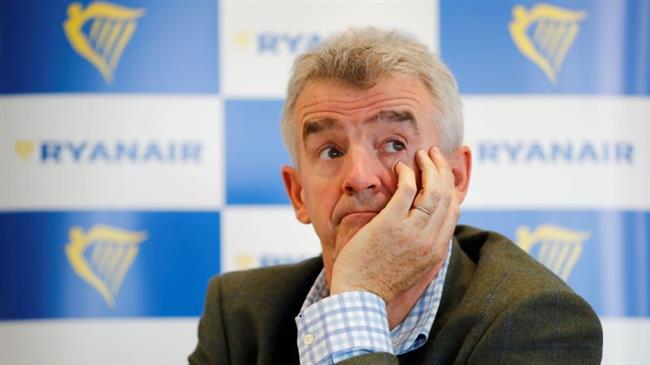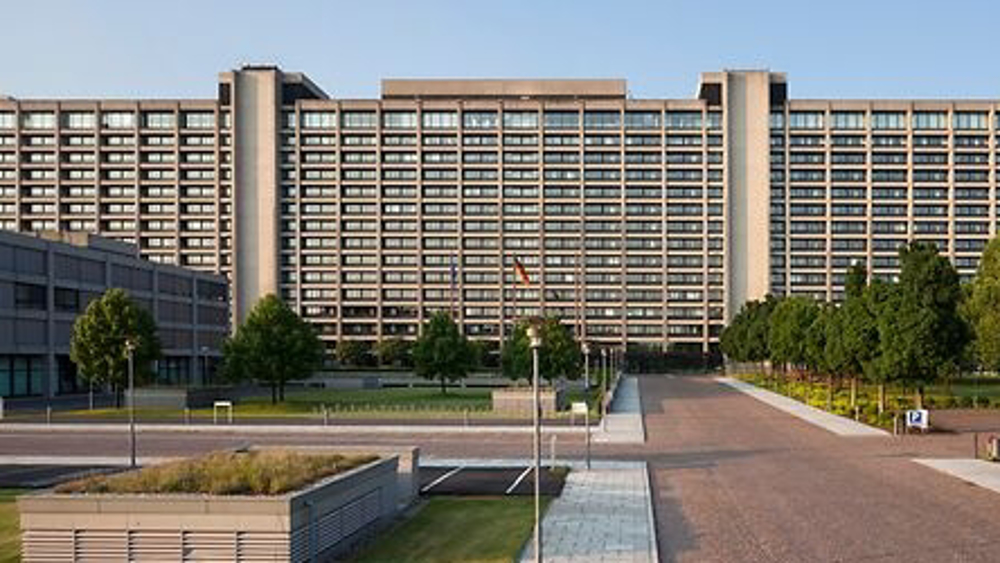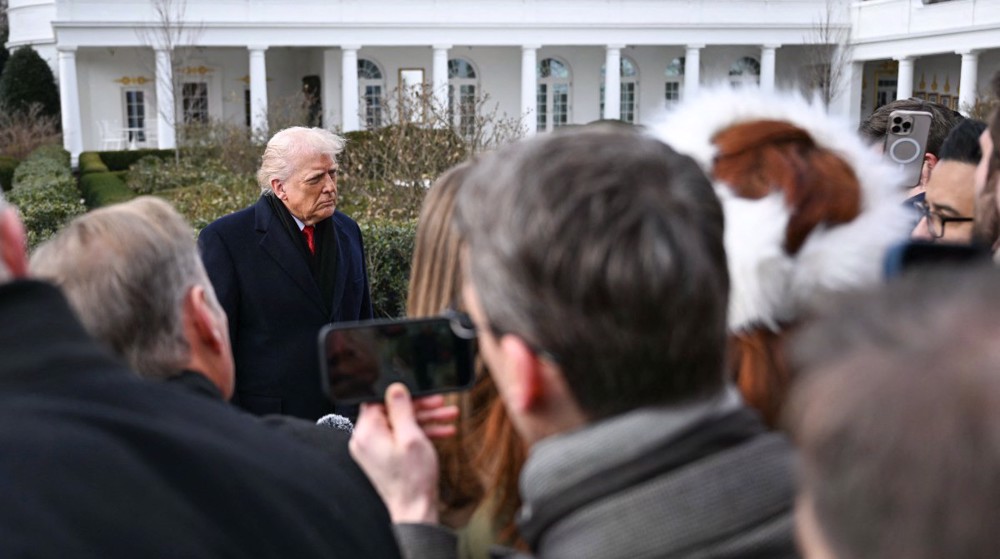Ryanair CEO calls for profiling of Muslims, sparks outrage
Ryanair’s chief executive Michael O’Leary has sparked outrage after he called for the profiling of Muslim men at airports, claiming that terrorists are “generally of a Muslim persuasion”.
Muslim men should be profiled and face further checks at airports because "that is where the threat is coming from,” the controversial CEO of Europe's largest low-cost carrier said in an interview with the Times newspaper published on Saturday.
He further noted under such profiling guidelines, passengers that would be flagged as a potential threat for terrorism would "generally be males of a Muslim persuasion".
"Who are the bombers? They are going to be single males traveling on their own... If you are traveling with a family of kids, on you go; the chances you are going to blow them all up is zero,” he said.
“You can’t say stuff, because it’s racism, but it will generally be males of a Muslim persuasion. Thirty years ago it was the Irish. If that is where the threat is coming from, deal with the threat,” he added.
A spokesman for the Muslim Council of Britain has accused O’Leary of “Islamophobia” and “encouraging racism”.
“In Germany this week a white person killed eight people. Should we profile white people to see if they’re being fascists? He’s being very blinkered and is actually encouraging racism,” Labour MP Khalid Mahmood told the Times.
The legislator was referring to mass shootings in Germany’s southwestern city of Hanau late on Wednesday during which eight people were killed and five others wounded.
Germany has been targeted in recent years by several extremist attacks, one of which killed 12 people in the heart of Berlin in December 2016.
But far-right attacks have become a particular concern for German authorities. The increase in hate crimes in recent months has prompted the country to expand a crackdown on right-wing political violence in order to repress the disturbance.
It seems that there has been a rise in far-right attacks across Europe in recent years.
On Thursday, a Muslim prayer leader was stabbed in the neck in front of hundreds of horrified onlookers at a mosque near Regent’s Park in the British capital London.
Raafat Maglad, who is in his 70s, returned to the London Central Mosque on Friday, saying he was sorry for the alleged attacker.
“I forgive him. I feel very sorry for him. What is done is done, he is not going to return,” he said, adding that as a Muslim he does not hold any hatred in his heart.
Maglad, who had his arm in a sling as he was escorted in to the mosque by security, said it was “very important” for him to attend Friday prayers.
Addressing worshipers over the loudspeaker system after prayers had ended, London’s mayor Sadiq Khan urged people to remain vigilant and reassured them that police would maintain a presence at the mosque, particularly as the holy month of Ramadan approaches.
A 29-year-old man who is believed to have been attending prayers was arrested on Thursday on suspicion of attempted murder inside the mosque.
However, concerns about the wider threat to mosques were voiced following the stabbing.
London Central Mosque is one of the country's largest and can hold 5,000 worshipers with people from across London going there for prayers.
Although the incident has not been declared a terrorist incident, the Met's SO15 counter terror unit is looking into it.
Less than a year ago, the mosque was affected by another stabbing incident.
Britain’s Muslim community has lost trust in the government. Fifty-two percent of all hate crimes last year were aimed at Muslims. But mosques are struggling to get government funding allocated to protecting places of worship. They receive a fraction of what other faiths are awarded.
FM Araghchi departs Muscat for Doha following nuclear talks with US
Israeli keeps killing more Palestinian civilians in Gaza amid relentless ceasefire violations
Aliyev: Azerbaijani territory will not be used for threats against Iran
Turkey arrests two on charges of spying for Israeli regime
Iran FM declares ‘good start’ as US–Iran talks conclude in Muscat
Iran strongly condemns 'terrorist' mosque blast in Islamabad
Iran enters talks backed by national power, popular support: MP
France, UK involved in assassination of Muammar Gaddafi's son: Reports















 This makes it easy to access the Press TV website
This makes it easy to access the Press TV website